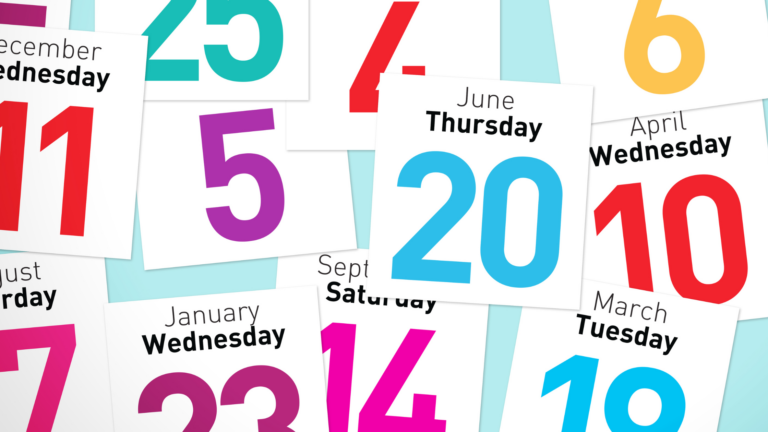Dreaming of studying at Bocconi University, one of Europe’s top schools for business, economics, and law? You’re not alone. With its world-class programs, international atmosphere, and location in the heart of Milan, Bocconi attracts ambitious students from all over the globe. But getting in takes more than just good grades.
If you’re serious about becoming a Bocconi student, you’ll need to stand out with a thoughtful, well-prepared application. The good news? We’ve got your back. These 5 smart Bocconi University application tips will help you move one step closer to your Bocconi dream.
1. Apply Early—and Stay Organized
Bocconi has multiple application rounds throughout the year, and spots fill up quickly. Applying early not only increases your chances of getting a spot but also shows that you’re serious about attending. Do whatever you can to be ready to apply in the Early Session. You have a better chance of getting in and have sufficient time to reapply in the Winter Session if you need to.
How to stay organized:
- Check the application deadlines for your preferred session (Early, Winter, Spring)
- Check the blackout dates for the Bocconi Admissions Test and the application deadlines. They’re different!
- Download our Bocconi application calendar, print it, and put it on your wall.
Keep copies of everything you submit, and don’t hesitate to reach out to Bocconi’s admissions office if you have questions. They’re there to help!
2.Prepare Strategically for the Bocconi Admissions Test
Unless you’re applying with SAT or ACT scores, you’ll need to take the Bocconi Admissions Test. This part of the Bocconi University application can make or break your chances. You can’t change your grades from the past two years, but you can improve your test score.
The test is fast-paced and focuses on critical thinking, mathematics, and reading comprehension. It’s designed to see how well you can think under pressure, not just what you’ve memorized in school.
While Bocconi doesn’t provide an official prep guide, you can practice logical reasoning puzzles, mental math, reading comprehension, and timed problem-solving exercises to improve your performance.
Check out our recommendations on how to prepare.
Alternatively, you can hire us to help you prepare! We’ve developed custom materials, including strategy notes, homework, and practice tests to ensure our students are ready for the test. We also have the latest intel from other students who have taken the test.
Check out our Bocconi Tutoring options and then book a FREE consultation!
If you start early enough, you can take the SAT and Bocconi Test then submit the score that will help your application the most.
3. Choose Complementary Programs for Your Bocconi University Application
When applying to Bocconi University, we recommend you select up to four programs in your application. This gives you the opportunity to show the admissions team that you’ve carefully considered your academic and career goals. Rather than choosing programs randomly, it’s important to pick ones that are complementary and genuinely reflect your interests.
Start by thinking about what excites you, whether it’s economics, management, finance, law, or politics. Then, look for programs that connect to that core interest in different ways. For example, if you’re passionate about global business, you might choose a mix of International Economics and Management, International Politics and Government, and Economic and Social Sciences. These programs are different, but all relate to international affairs and decision-making.
Selecting related programs shows Bocconi that you have clear goals and a well-rounded academic focus. It also increases your chances of being accepted into a program that truly fits your strengths and interests.
Above all, be honest with yourself. Don’t pick something just because it “sounds impressive.” Choose programs you’re excited to study. That enthusiasm will come through in your Bocconi University application and help you stand out as a motivated, thoughtful candidate.
4. Check Your Bocconi GPA!
Before applying to Bocconi University, it’s a smart idea to use the Bocconi GPA calculator to estimate where you stand academically. This tool helps convert your local grades into Bocconi’s scale, giving you a better sense of how competitive your academic profile is. By checking your GPA early, you can make informed decisions about which programs to apply for and whether to strengthen other parts of your application, like your test scores. It’s quick, easy to use, and can help you plan your application strategy with confidence. Always double-check the latest requirements on Bocconi’s website!
Click here for the Bocconi GPA Calculator
Bocconi’s guidance on the courses to include
5. Reapply If It Doesn’t Go Your Way
If you don’t get accepted to Bocconi University on your first try, don’t get discouraged. You can reapply, and many students do. Bocconi allows applicants to apply again in future admission sessions, either in the same year (if more rounds are open) or the following year. Reapplying shows determination, and if you take time to strengthen your application, your chances can improve significantly.
Start by reviewing your previous application. Were your grades competitive? Did your admissions test score reflect your true potential? Consider retaking the Bocconi test or submitting improved SAT/ACT scores. You can also highlight new achievements, projects, or extracurricular activities that weren’t included the first time.
When you reapply, don’t just submit the same materials. Show growth. Admissions officers want to see that you’ve reflected on your application and taken steps to improve.
Reapplying is not a setback. It’s an opportunity to show persistence, self-awareness, and improvement. Many successful Bocconi students didn’t get in on the first attempt, but they used the experience to come back stronger. With the right mindset and preparation, your second try could be the one that gets you in.
Ready to boost your chances of getting into Bocconi University?
Crush the Bocconi Admissions Test with expert help! Our private tutoring program is designed specifically for the Bocconi Admissions Test, giving you the strategies, speed, and confidence you need to perform at your best.
- One-on-one coaching tailored to your strengths and weaknesses
- Practice with real-style test questions under timed conditions
- Tips to master critical thinking, math, and reading comprehension
Don’t leave your dream school to chance. Start preparing the smart way—book your FREE consultation today and get ahead of the competition!
















